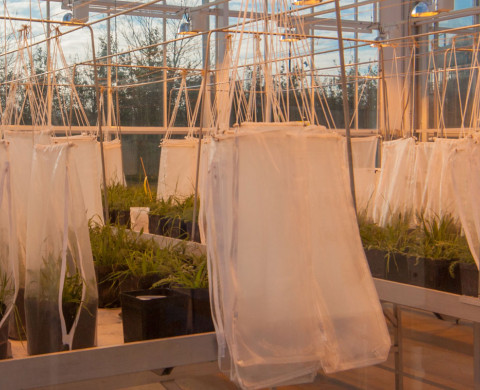Using soil bio-inocula to enhance tomato and strawberry pest resistance and production

Inoculation of plants or soil with consortia of beneficial soil organisms is a increasing practiced to boost plant nutrition and defense in sustainable agriculture and horticulture, thereby reducing the need for high input of fertilizers and pesticides. However, how such inoculations affect the native soil biodiversity and how native soil biodiversity affects the efficacy of the inoculated microbes in producing beneficial effects is currently poorly understood. The aim of this research is to investigate the mechanisms by which consortia of beneficial microbes enhance plant tomato and strawberry resistance to aboveground pests, whether such effects depend on the resident soil microbiome and what the effect of such inoculations is on the resident soil microbiome. This project is part of a EU-H2020 Sustainable Food Security programme (Excalibur project) “Exploiting the multifunctional potential of belowground biodiversity in horticultural farming” (Excalibur) in which with 16 participating groups from academia and industry investigate soil biodiversity dynamics and its potential synergistic effects with microbial inoculants and bio-effectors
Experts
-

-
Shumaila Rasool
Postdoc , Terrestrial Ecology
